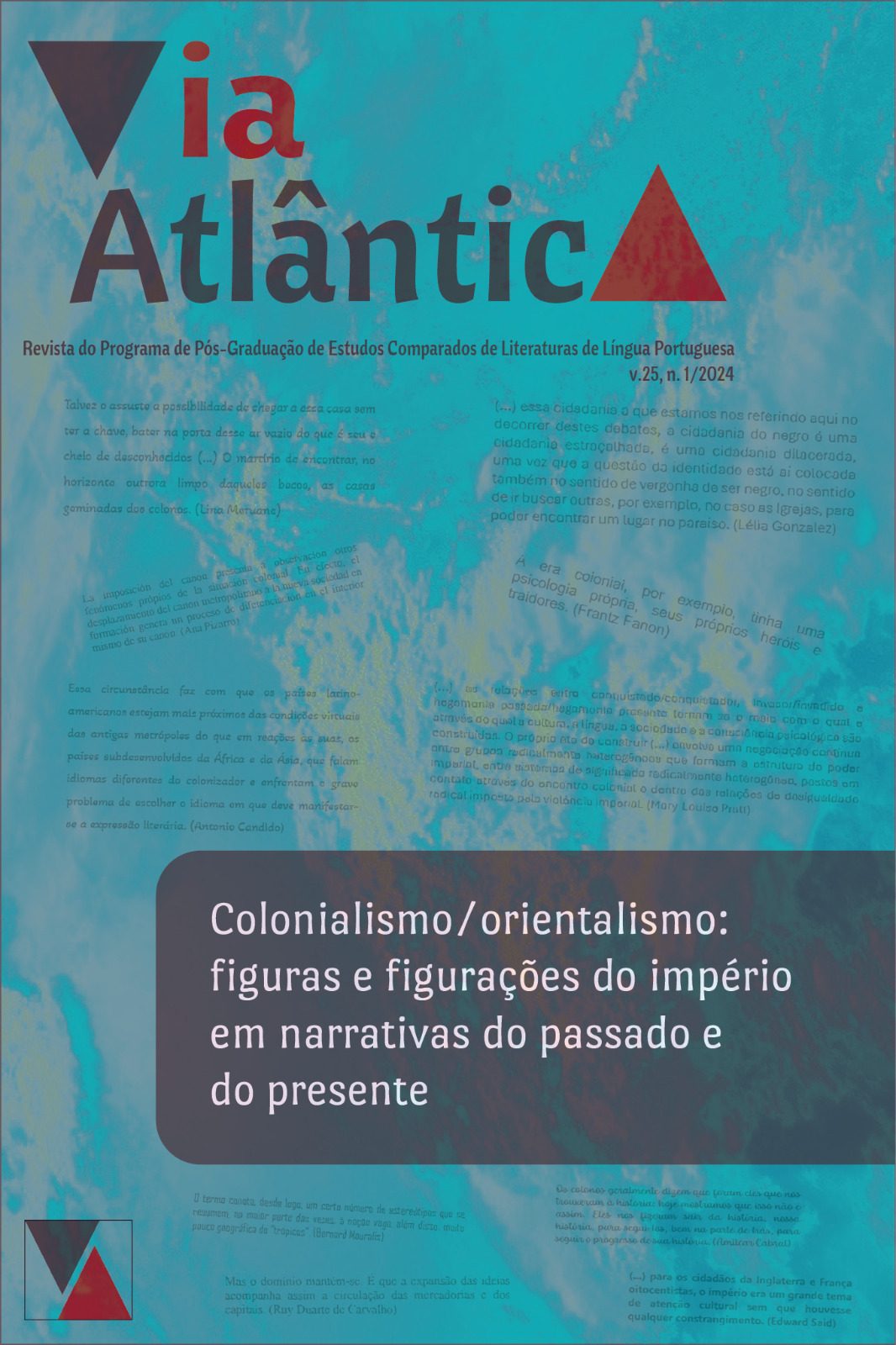Não somos Iracema: a imagem da mulher indígena sendo (re)escrita nas artes e nas literaturas
DOI:
https://doi.org/10.11606/va.i1.199345Palavras-chave:
colonialismo, representação, indígena, mulheres , Yacunã TuxáResumo
A colonização criou diversas imagens sobre sujeitos indígenas e essas representações mitificaram e reduziram suas subjetividades ao passar dos tempos. No caso da mulher indígena, esse imaginário se configurou de forma ainda mais problemática, porque, além da inscrição em uma lógica colonial binária, esses corpos foram historicamente construídos e fixados sobre os modelos de uma sociedade patriarcal. Este trabalho apresenta uma leitura diversa a essas fabricações por meio da obra Não somos Iracema da artista e ilustradora Yacunã Tuxá, indígena do povo Tuxá, que questiona esses paradigmas e apresenta um olhar questionador e contemporâneo em suas obras.
Downloads
Referências
BRASIL. Ministério da Cultura. Departamento Nacional do Livro. A carta de Pero Vaz de Caminha. Disponível em: http://objdigital.bn.br/Acervo_Digital/livros_eletronicos/carta.pdf. Acesso em: 27 dez. 2020
MACEDO, Ana Gabriela; AMARAL, Ana Luísa (Orgs.). Dicionário da Crítica Feminista. Porto: Afrontamento, 2005.
MANUEL LISBOA, Maria. ‘Admirável Mundo Novo? A Primeira Missa no Brasil de Paula Rego’ in João Cézar de Castro Rocha (ed.), Nenhum Brasil existe: pequena enciclopédia (Rio
de Janeiro: Topbooks Editora, 2003), pp. 73–91.
NOCHLIN, L. Why have there been no great women artist? In: Nochlin, L. Women, art, and power. Boulder and Connor Hill: Westview Press, 1988a. p. 136-144. [ Links ]
NOCHLIN, L. Eroticism and female imagery in nineteenth-century art. In: Nochlin, L. Women, art, and power. Boulder and Connor Hill: Westview Press , 1988b. p. 145-178. [ Links ]
POLLOCK, Grizelda (2002), “A política da teoria: gerações e geografias na teoria feminista e na história das histórias de arte”. (trad. Ana Gabriela Macedo e Maria Amélia Carvalho) in Macedo, Ana Gabriela (org.), Género Identidade e Desejo: Antologia Crítica do Feminismo Contemporâneo, Lisboa: Cotovia, pp.191-220
OLIVEIRA, João Pacheco. A viagem da volta: etnicidade, política e reelaboração cultural no Nordeste indígena.2ª ed.Rio de Janeiro: Contra Capa Livraria/ LACED, 2004.
RICH, Adrienne (2002), “Notas para uma política da localização”. (trad. de Maria José Gomes), in Macedo, Ana Gabriela (org.), Género Identidade e Desejo: Antologia Crítica do Feminismo Contemporâneo, Lisboa: Cotovia, pp.19-20
RIBEIRO, Luciara , TUPINAMBÁ, Moara Véxoa: nós sabemos (ou o que não sabemos) Disponível em :https://www.select.art.br/vexoa-nos-sabemos-ou-o-que-nao-sabemos/ publi-cado em: ano 10, nº 49, jan/fev/mar 2021
SANTOS, B. de S (2019) – Fronteiras do ser e do não ser Boaventura de Sousa Santos Jornal de Letras | 8 a 21 de maio, 2019. Disponível em: https://alice.ces.uc.pt/en/index.php/homepage-posts/boaventura-de-sousa-santos-fronteiras-do-ser-e-do-nao-ser-jornal-de-letras-8-maio-2019/ acessado em 17.01.21
SANTOS, B. de S. (1993). Modernidade, identidade e a cultura de fronteira. Tempo Social, 5(1/2), 31-52. https://doi.org/10.1590/ts.v5i1/2.84940
Downloads
Publicado
Edição
Seção
Licença
Copyright (c) 2024 Ellen Cristine Cruz de Lima

Este trabalho está licenciado sob uma licença Creative Commons Attribution 4.0 International License.
Autores que publicam nesta revista concordam com os seguintes termos:
- Autores mantém os direitos autorais e concedem à revista o direito de primeira publicação, com o trabalho simultaneamente licenciado sob a Licença Creative Commons Attribution que permite o compartilhamento do trabalho com reconhecimento da autoria e publicação inicial nesta revista.
- Autores têm autorização para assumir contratos adicionais separadamente, para distribuição não-exclusiva da versão do trabalho publicada nesta revista (ex.: publicar em repositório institucional ou como capítulo de livro), com reconhecimento de autoria e publicação inicial nesta revista.
- Autores têm permissão e são estimulados a publicar e distribuir seu trabalho online (ex.: em repositórios institucionais ou na sua página pessoal) a qualquer ponto antes ou durante o processo editorial, já que isso pode gerar alterações produtivas, bem como aumentar o impacto e a citação do trabalho publicado (Veja O Efeito do Acesso Livre).



















